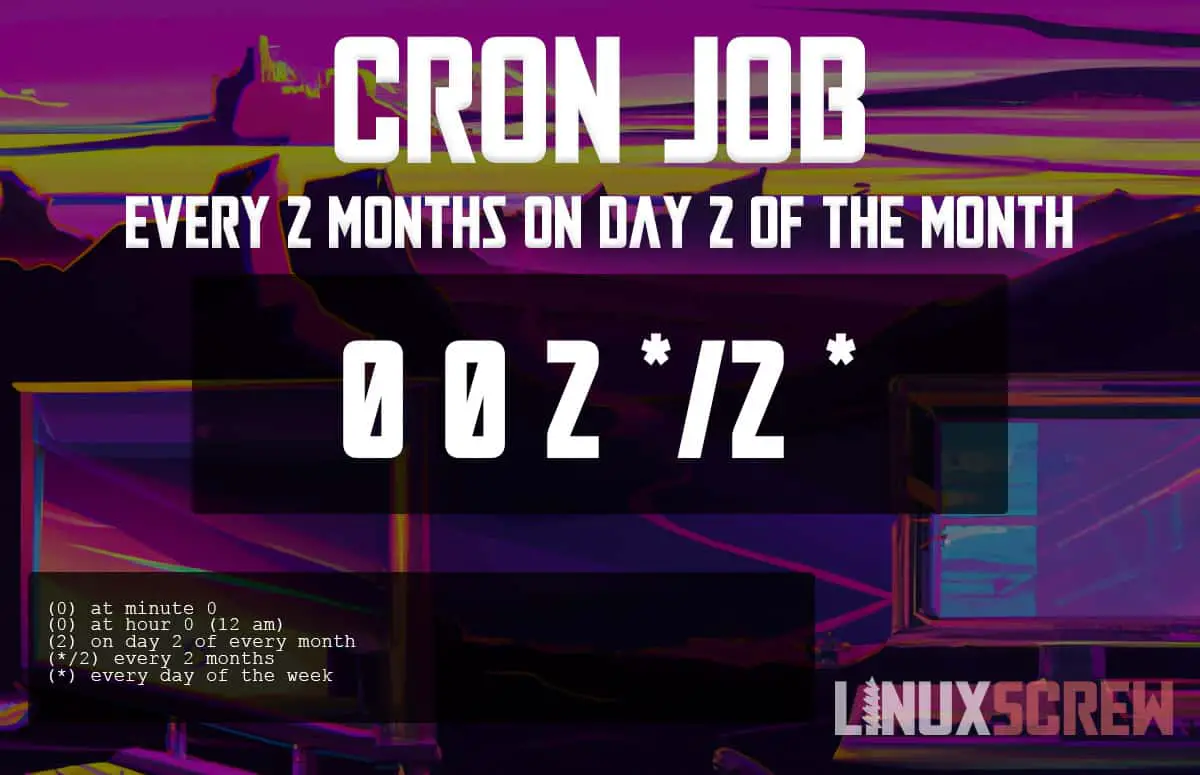This page will help you quickly and easily set up a cron job to run every 2 months on day 2 of the month.
The Cron Job/Crontab
To have your task run at this frequency, use the following cron:
0 0 2 */2 *
This cron command translates to the following (in Human-Readable format):
“Every 2 months on day 2 of the month.”
What is a Cron Job & Crontab?
A cron job is a time-based task that is set to run at specific intervals. These jobs are usually used for maintenance or automation purposes. For example, a cron job could be set to delete temporary files every week so that they don’t take up space on the server.
A crontab is a file that contains instructions for the cron daemon. The cron daemon is a program that runs in the background and executes tasks at specified times. A crontab file consists of a series of lines, each of which represents a task to be executed. Each line has five fields, separated by spaces or tabs.
Cron Fields
Every cron job uses five fields. Here is an explanation of what each field does in this cron, which runs “every 2 months on day 2 of the month“:
FUN FACT: When editing your crontab, it is important to use a text editor that supports Unix-style line endings (LF), as opposed to Windows-style line endings (CRLF)..
Use Cases
You might want to set up a crontab or cron job to run every 2 months on day 2 of the month for several reasons, including:
- Automatically send a report on the first of every month
- Back up data at the end of every day
- Delete temporary files every week
- Generate statistics on website usage every month
Similar Cron Jobs
You might also want to run a crontab:
- every 3 months
- every 4 months
- every 1 month
- every 6 months
- every 5 months
- every 2 months
- every 4 months on day 8 of the month
- every 1 month on day 24 of the month
FUN FACT: Cron is typically used for things like system maintenance tasks, running backups etc..
Wrapping Up
In this article, you learned how to set up a cron job that runs every 2 months on day 2 of the month. Please share this page with friends and colleagues if you find it useful.
If you have any questions, please don’t hesitate to comment below.
If you are looking for cron jobs that run at certain minutes, hours, days, weekdays, or months, or if you are looking for miscellaneous cron jobs, then check out our relevant sections, or visit our cron job cheat sheet for a list of hundreds of popular cron jobs.

